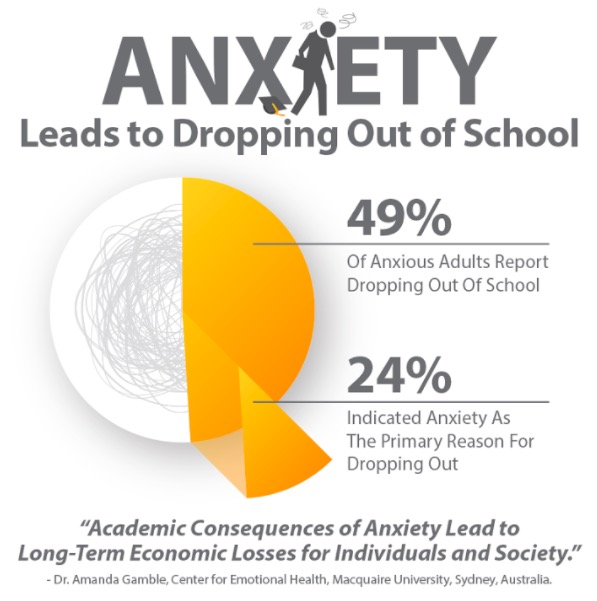
Recent research studies on anxiety and academic performance suggest that performance is lowered when stress and anxiety are present. This is true for all students; however, the effects of anxiety on performance are increased for students in special education.
Test Taking and Anxiety
One of the major barriers to academic success is the anxiety students feel when taking tests. Test anxiety is a combination of physiological over-arousal, tension and somatic symptoms, along with worry, dread, fear of failure, and catastrophizing, that occur before or during test situations. This anxiety creates significant barriers to learning and performance. (Test anxiety – Wikipedia https://en.wikipedia.org/wiki/Test_anxiety)
Limiting Performance
A view from a special education school in upper Manhattan that serves a distinct population of high-need, atypical learners, including students who present on the autistic spectrum and those who exhibit any of the array of conditions classified under the diagnosis of emotional disturbance (ED), is summarized here:
Staff members state that test scores were dramatically lowered as a result of students’ test anxiety. The staff also observed that the lingering effect of test-taking anxiety spills over into other classroom and work which inhibits effective learning for a population of students that already encounters obstacles to their educational development.
They report that their efforts to leverage internal Social Emotional Learning (SEL) and Positive Behavior Interventions and Supports (PBIS) related tools and initiatives, combined with the establishment of their Focus Friday program, has resulted in a drastic decline in students ripping up tests, running out of classrooms during test time, or giving up all together. Most importantly, as students’ test anxiety-driven behaviors decreased, students’ performance on standardized tests started to improve. (Barry Daub, principal at M811 Mickey Mantle School. Brian Joyce, United Federation of teachers.)

Reduced Test Scores
In another study that shows that anxiety can significantly reduce test scores led by researchers at the University of Chicago, findings indicate that the better students do at math, the more strongly their performance will be dragged down by anxiety. That relationship between anxiety and achievement holds not just in the United States, but around the world, according to the authors.
Read more at: https://phys.org/news/2017-03- anxiety-affects- scores-students-excel.html#jCp
Another recently-funded study on anxiety and test performance is a massive research project involving math students from the Western campus of Cuyahoga Community College (Tri-C) in Parma and seeks to help improve math test performance. The research Tri-C is involved in seeks to measure cortisol levels in students before tests, and to gauge their pre-test psychological state. Cortisol is a response to stress and anxiety. Using that information, researchers can test whether certain interventions intended to channel stress—turning it from a negative threat to a positive challenge—can improve student performance.
Still Not Convinced?

If you are still not convinced about the negative effects of anxiety and student performance, think about these facts:
- Anxiety leads to dropping out of school
- 49% of anxious adults report dropping out of school
- 24% indicated anxiety as the primary reason for dropping out.
(Academic Consequences of Anxiety Lead to Long-Term Economic Losses for Individuals and Society. — Dr. Amanda Gamble, Center for Emotional Health, Macquaire University, Sydney, Australia.)
The results of these studies are too obvious to ignore. If you want to improve academic performance you need to reduce the negative effects of anxiety. The best way to do this is to assess and provide skill interventions for anxiety using SEL.
